Did you know that you will be expected to eat a maximum of 16kgs of meat per year through the C40 Cities global initiative to confront the “climate crisis?”
So far, there are 96 ‘C40 Cities’ worldwide, which include Sydney and Melbourne with more cities predicted to jump on board as regions merge together to create "mega-cities.”
See our article on the Greater Cities Planning Portfolio for NSW and other Australian states. The aim of these C40 Cities is to create a sustainable future. In the name of this sustainable future, you, your children, and your grandchildren will be required to make sacrifices for the "common good.”
This is outlined in United Nations Sustainable Development Goal 13, which is part of a set of goals that our governments agreed to implement when they signed us up to Agenda 21 in 1992, otherwise known as the United Nations “Ecological Sustainability” Agenda or "Sustainable Development".
All the U.N’s sustainable development goals (SDGs) have been adopted by the C40 City initiative. They have written a report on 'The Future of Urban Consumption in a 1.5° World.’ This report contains targets for interventions they deem necessary to regulate your carbon footprint.
Below are some of the projected targets set out for populations who inhabit C40 Cities to adhere to in order to achieve the United Nations goal of net zero.
The Targets below are aimed for 2030:
- Your meat consumption - Their progressive target for meat consumption is 16kgs per person, per year, while their ambitious target is 0kgs per person (page 78 of report below).
- Your dairy consumption - Their progressive target for dairy consumption is 90kgs per person, per year, while their ambitious target is 0kg of dairy per person (page 78 of the report below).
- How much clothing can you purchase? Their progressive target for clothing is 8 new items per person, per year, while their ambitious target is 3 items per person, per year (Page 82 of the report below).
- Private vehicle ownership - Their progressive target for private vehicle ownership is 190 cars per 1000 people, while their ambitious target is 0 private vehicles per person (page 86 of the report below).
- Your flight entitlements - Their progressive target is 1 short-haul return flight (less than 1500 km) every 2 years per person, while their ambitious target is 1 short-haul return flight (less than 1500 km) every 3 years per person (page 90 of the report below).

To download a copy of the full report that lists all of the above mentioned targets and more, click here.
But how can this be enforced?
You may be wondering how these restrictions could possibly be enforced. While this isn't made clear in the report, we can look at the existing technologies to get an idea of how they may be implemented. We will list just a few of these existing technologies and systems:
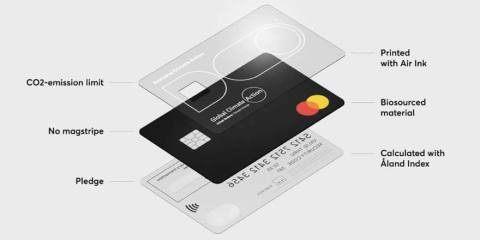
Carbon credit cards - Doconomy DO Black is the first ever credit card with a carbon limit. It cuts you off when you have exceeded your carbon allowance. Of course, this card is currently voluntary, but what would happen if a state of emergency was declared? Could such a card be mandated for all the citizens of the world to help the C40 city regulators achieve their net zero goal?
As cash is phased out and digital currency becomes the norm, it will be much easier for governments to work with financial institutions to regulate their citizens' spending habits. We have already seen governments like Canada freeze the bank accounts of law-abiding citizens who engaged in peaceful protests against government policies they didn't agree with. More than 200 bank accounts holding almost $8 million were frozen under the Canadian federal government's 'Emergency Act.' Click here to read more about this.
If climate change and carbon emissions are classified as an emergency, could it justify regulating everyone's carbon footprint with this technology?
Smart meters and smart appliances - Smart meters already know everything about your energy use, down to the finest detail. The data about every single appliance is collected and shared and will eventually be connected to a smart grid. Smart meters can remotely shut off or restrict energy use.
An example of this is when Queensland's state-owned power grid remotely turned down almost 170,000 air conditioners six times within two months as part of a scheme to protect the electricity network, often without the knowledge of the residents of businesses. This was done through PeakSmart meters that people voluntarily signed up for, but we must consider that all our meters are being replaced with smart meters.
Will these meters be used to limit our energy supply in the future, in the name of saving the planet? Click here for the source.
In an era of smart appliances like smart fridges where an app keeps a record of everything that's inside your fridge in real-time, we have to ask ourselves if all these smart technologies are really just for our convenience or if these smart technologies, encased within smart city infrastructure, will act more like a free-range prison, with regulations upon regulations that cannot be avoided because of the excessive monitoring and data collection that will guarantee compliance.
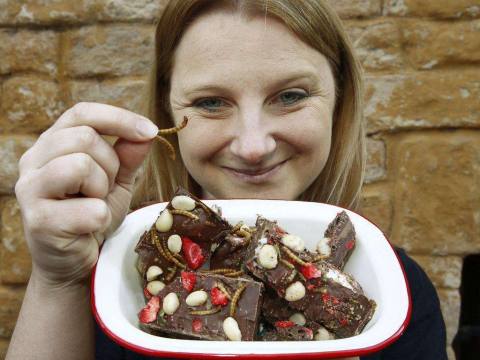
Meat substitutes - As farmers face the possibility of being taxed for their cows farting and burping, there is a push for us to eat insects and lab-grown meat.
1000 Australian school canteens already stock cricket chips for students, and in 2021 the Edible insects: A roadmap for the strategic growth of an emerging Australian industry was launched. It lays out a comprehensive plan for the emerging industry, exploring the challenges, opportunities, cultural values, sustainability, and health outcomes of the edible insect industry in Australia.
Furthermore, we have a company by the name of VOW, which is currently going through the approval process of having their lab grown meat available for consumption in Australia as early as this year.
Is this how the C40 City regulators could achieve their ambitious target of 0kgs of meat per person? By encouraging us to eat insects and experimental lab-grown meat?
Carbon Passports - There is a call to introduce carbon passports for travel by 2040. "The idea of a carbon passport centres on each traveler being assigned a yearly carbon allowance that they cannot exceed. These allowances can then “ration” travel.
The average annual carbon footprint for a person in the US is 16 tons – one of the highest rates in the world. In the UK this figure sits at 11.7 tons, still more than five times the figure recommended by the Paris Agreement to keep global temperature rise below 1.5 Celsius (2.7 Fahrenheit) above pre-industrial levels.
Globally, the average annual carbon footprint of a person is closer to 4 tons. But, to have the best chance of preventing temperature rise from overshooting 2 Celsius, the average global carbon footprint needs to drop to under two tons by 2050. This figure equates to around two roundtrip flights between London and New York." Click here for source.
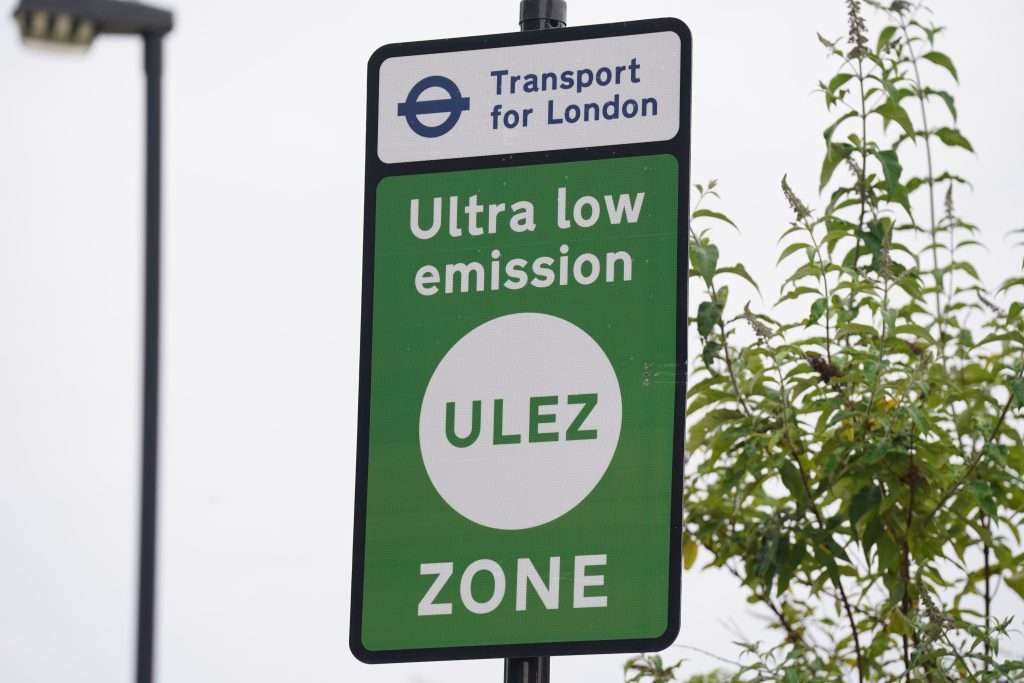
ULEZ - 'Ultra Low Emission Zones' are already being trialed in London. Cameras that scan vehicle number plates are installed throughout the city to keep track of motorists and issue fines for non-compliance with the city's rules.
There is currently a proposal that would see drivers in London pay depending on the time of day, amount of passengers and the distance they drive in London. Click here for source.
If your vehicle doesn't meet the ULEZ emissions standards and isn't exempt, you need to pay a £12.50 daily charge to drive within the zone. Click here for source.
This is also planned to start in Australia. A news article reports that "Motorists in Sydney could be hit by a congestion charge when driving in the CBD and surrounding inner-city areas as part of a transport strategy that aims to cut back on carbon emissions in the metropolis."
Clothing trackers - "Digital IDs use data tracking to provide fashion brands and consumers with accurate and transparent information - from a garment's origin, manufacturing process, and materials used, through to how many owners, how many times it was repaired or rented, and whether it’s been resold or recycled. With this transparency, brands can make informed decisions on manufacturing and production, and consumers can support brands that align with their values." Click here for source.
We should consider that if the C40 Cities intend to limit garment consumerism, could this same technology be used to ensure you haven't exceeded your garment quota for the year?
EV's and remote controls - "Ford Motor Co. has filed for a patent on technology that could remotely shut down your car's radio or air conditioning, lock you out of your vehicle, or prompt it to ceaselessly beep if you miss car payments. According to the Ford patent application for repossession-linked technology, cruise control and automated windows could be disabled if a consumer doesn’t acknowledge a notice of an overdue car payment. Ford could also shut down key fobs, door locks — even the accelerator or the engine itself.” Click here for source.
Will this be the norm for vehicles in the future? Can this technology also be used to regulate our motor vehicle use, and what about the threat of hackers?
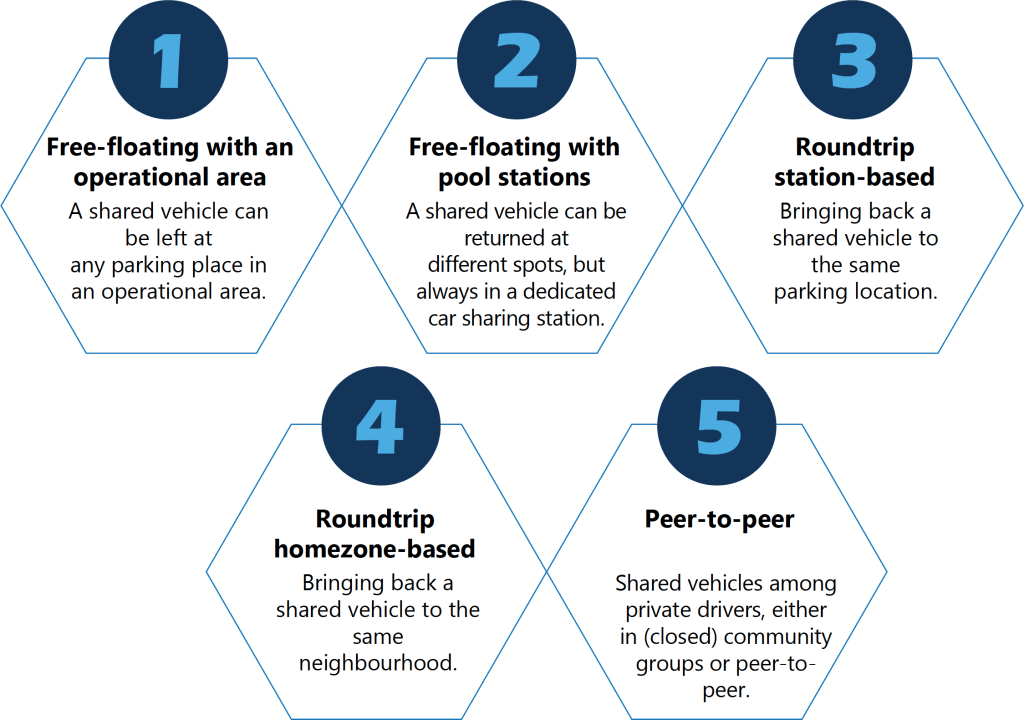
Shared cars to replace private car ownership? The C40 Cities website states "Car sharing can promote an urban environment lifestyle less dependent on private cars and offer a supplement to public transport in cities. Thus, it has the potential to ease congestion, reduce parking demand, reclaim street space for active mobility and cut emissions."
The webpage then provides a "toolbox" and policy suggestions for city governments and planners to introduce car sharing into their cities. Click here for the source.
As you can see, the technologies to regulate your carbon footprint already exist, as does the climate hysteria and the think tanks that seek to actualise these restrictions on society.
We should be aware of what the “S.M.A.R.T." in smart city actually stands for. It is an acronym for Surveillance, Monitoring and Analysis Reporting Technology. To learn more about the possible dangers of SMART cities, read our article, 'Kate Dillon Speaks on The Dangers of Smart Cities'.
Considering the urgency to reduce carbon emissions, smart cities seem like a great apparatus for monitoring and controlling citizens to comply with whatever new rules and regulations the unelected officials dream up to solve the alleged "climate crisis," (which is a questionable topic and one we discuss in our article, 'Is the climate change narrative a lie?').
Governments around the world have had no qualms about trampling on human rights during a perceived emergency in the past, so what is stopping them from doing so again in the future?
A short video explaining how the United Nations have asserted control over our local governments, and the dangers of smart cities
Would you like to spread awareness with a flyer or a shirt?
These flyers and shirts feature a link to this article.

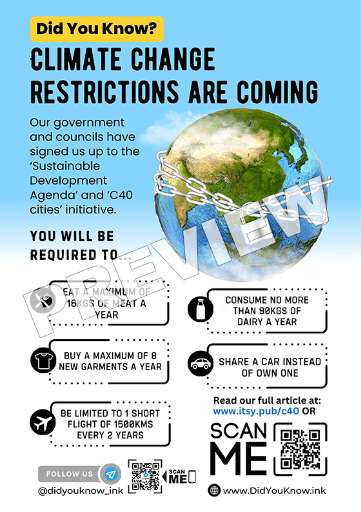
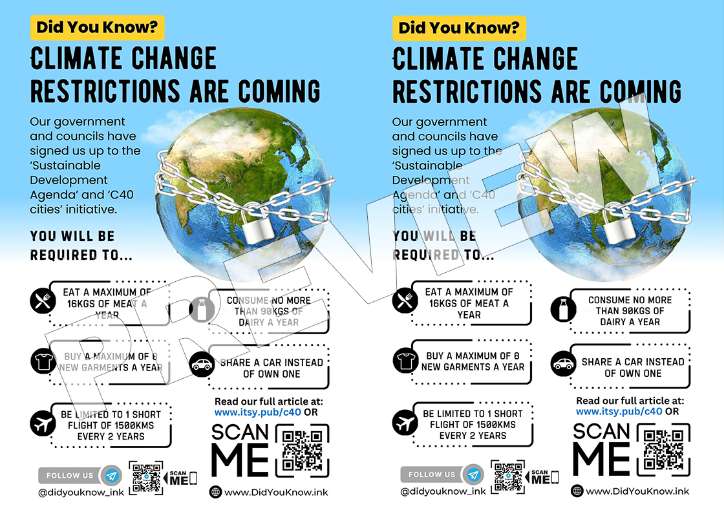

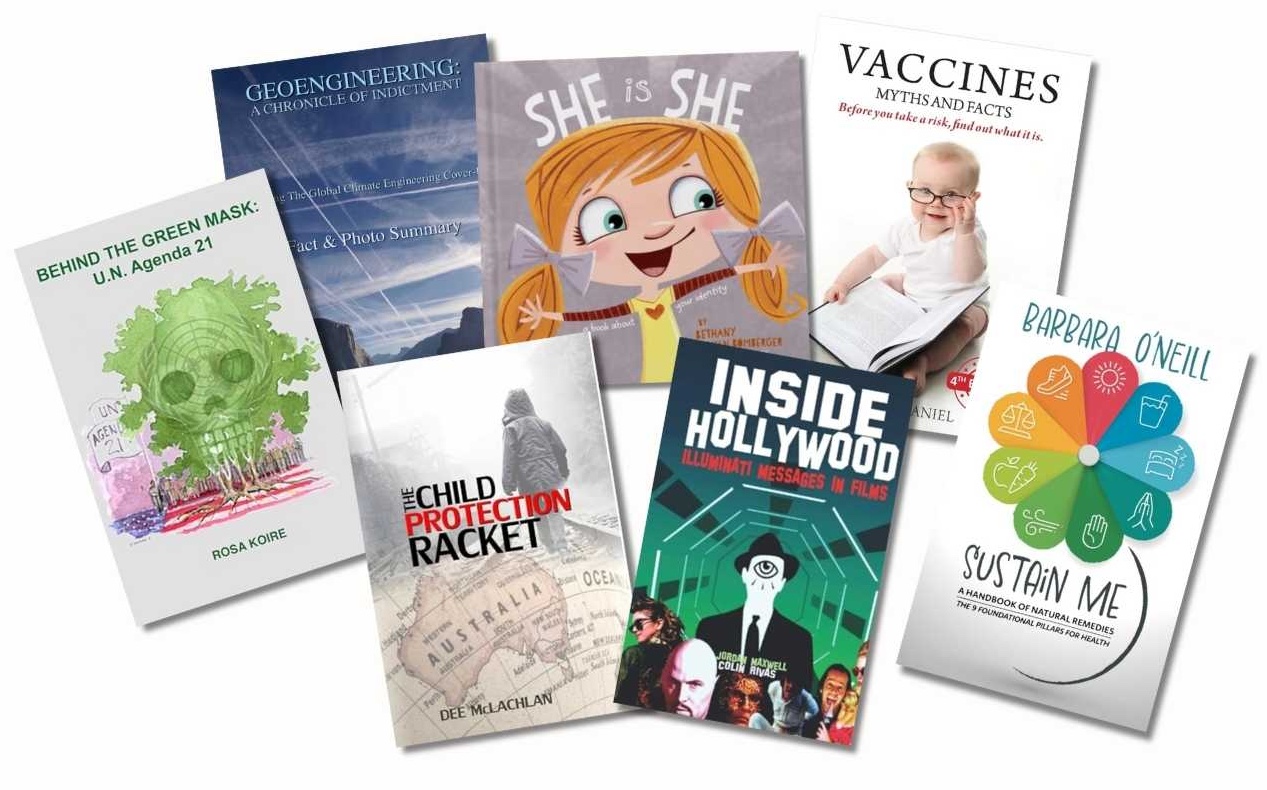










I do not consent!!!!!
Bullshit
Bullshit? Are you saying this isn't true?
Do you actually believe this?
Thankyou for all the work that goes into collecting all the information and presenting it to the public. I would love to be able to get the physical newspaper if possible.
Hi Michelle. We don’t have a physical newspaper but we do have free flyers and stickers you can order for free through this form https://didyouknow.ink/order/ I can send you some free copies of the latest light newspaper also 🙂
There is also another great newspaper which just recently came out that was created by a local central coast group, not us. This one isn’t free however it is packed with 80 pages full of great info if you wanted to check that out also https://corruptionwhistleblower.com/distribute-the-newspaper/
I peel your cooker stickers off everything i see them on 🙂
Most of these things don't affect me. But I will be getting out of a big city to get away from this control. I don't eat "meat", don't trust planes, eat ethical dairy, hate clothes shopping, and don't have a car.... but I can see where all this is leading and have aware of it for a while.
These changes are awesome. Well done to the people who are undertaking the incredibly difficult task of designing ways for us to survive anthropogenic climate change. It won't be easy, but we can do it! Down with the greedy and destructive fossil fuel shills, I'll be adding cricket chips to my grocery list 🙂
Just to be clear, nobody is suggesting a legal restriction on things like eating meat and dairy, that of course would be absurd. Where the author of this is going wrong is assuming that these changes will be enforced through laws, not through attempts at changing the culture, which is what the UN is proposing; a cultural shift. If we all decided to be more responsible with the environment (recycling more, driving less, eating less meat and dairy, etc) our planet would benefit greatly. We NEED cultural changes to reduce our carbon emissions, or else we're at the end of the line of human history.
Thank you for your feedback. The author is aware that there are no legal climate restrictions at this point in time. The article is merely pointing out that the tools to impose restrictions already exist should a climate emergency be declared.
Kind regards.
are you ignoring me...
i keep commenting asking for advice and i always see you respond to everyone but me. safe to say, my feelings are well and truly hurt.
please respond.
big fan of your work though and i love reading your articles
Thank you for your kind words. How can I assist?
Dear Jess Smith,
First of all, WOW! It's a great pleasure to hear from you as I am a MASSIVE fan of your work. I would also like to formally apologise for leaving you unanswered for so long as well as my comment saying that my feelings were "well and truly hurt", I was just lashing out and upset and for that I apologise, you have not hurt my feelings. As you may be aware I have been trying to reach out to you for a while, I've sent emails and been commenting on your wonderful articles for months, some of my favorites are as follows (in no particular order):
#3. "Have you informed yourself about childhood and routine vaccination?"
#2. "The dangers of 5G and Radio Frequency Radiation"
#1. "Is the climate change narrative a lie?"
(honorary mention: "Died Suddenly - A must watch documentary" by The Speaker (I must say an interesting name. Was it given to them at birth? If you know, let me know please!)
Anyway to answer your question on how you can help, I'd first like to share with you my story...
It all began last year when I was walking down the city streets with my friend and we found one of your protests. At the time I must admit I did not believe, hence I walked off. Later that week I saw my wonderful son reading one of your articles, at first I dismissed it and told him to stop... that was until I read further. I am now a dedicated member of your cause and wish to spread the word. One theory I have developed over the course of the years has been in relation to both 5G frequencies and agriculture chipping as well as that strange and eerie feeling I get whenever I am confronted with a tree. (I am more than sure an academic such as yourself would understand these topics far more than I so apologies if my message is not coming across.) About a month or two ago I started to ponder the meaning of it all. You know? Like for instance, what's the meaning of life? We're born, we live for a mere fleeting second in the grand scheme of things and then... we die. What's the point? But I don't see this in a bad way Jess Smith, nay, I believe the world's greatest mystery of the meaning of it all is just one of the many things that make life on this strange spinning rock (for the purpose of the expression, I know the earth is not a sphere... I'm not dumb) so wonderful. So wonderful until the government decided to install a 5G tower in my backyard in my rural farm in Harrisfield. Sometimes when I'm feeling down in the dumps I like to remember this famous quote: "I AM SAM. I AM SAM. SAM I AM." it just really reminds me of my purpose here on this planet, that I should never change for anyone. No matter who people tell me I am, I will always be Sam. Sam I am. Another quote I quite enjoy is "SAY! I LIKE GREEN EGGS AND HAM! I DO! I LIKE THEM, SAM-I-AM! AND I WOULD EAT THEM IN A BOAT. AND I WOULD EAT THEM WITH A GOAT... AND I WILL EAT THEM, IN THE RAIN. AND IN THE DARK. AND ON A TRAIN. AND IN A CAR. AND IN A TREE. THEY ARE SO GOOD, SO GOOD, YOU SEE! SO I WILL EAT THEM IN A BOX. AND I WILL EAT THEM WITH A FOX. AND I WILL EAT THEM IN A HOUSE. AND I WILL EAT THEM WITH A MOUSE. AND I WILL EAT THEM HERE AND THERE. SAY! I WILL EAT THEM ANYWHERE! I DO SO LIKE GREEN EGGS AND HAM! THANK YOU! THANK YOU, SAM I AM." which reminds me that I should always try new things as even the most unorthodox of things (like green eggs and ham one might say) can quickly become something amazing. That is why I decided to become a truth seeker. Anyway I also love youtubers such as Mr Beast and T Series, I believe that their videos have some very heartwarming moments and I am sure that absolutely nothing bad will ever happen to them such as revelations about them or their coworkers or any controversy in general. My favorite actor is Ezra Miller from the Flash. I am sure he is going to have a long and fulfilling career without any allegations made against him.
Anyway, please give me some advice on how to the spread the word in my local community.
Much love and all the best,
Spencer Joese